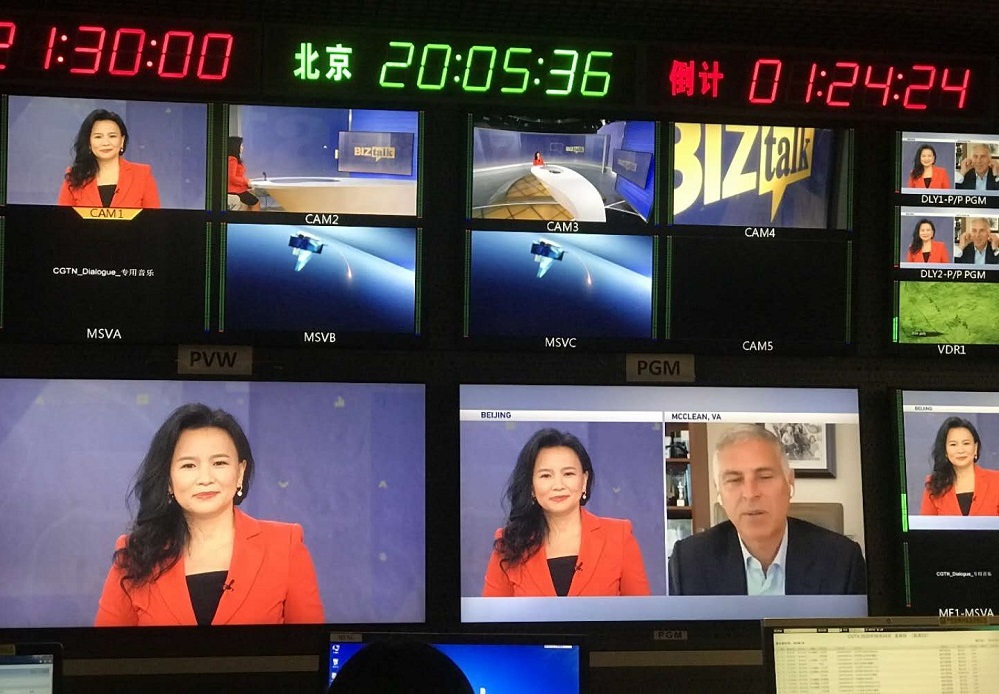
The detention of Australian journalist Cheng Lei by authorities in Beijing, and its timing, sit within the Chinese government’s larger strategy to expand its international influence and power over others. But it also shows the flaws in that strategy.
Cheng’s detention may be not so much about what she herself may have done or not done, but about Beijing’s willingness to use its political control of the Chinese legal system for strategic purposes. There’s no doubt that it will have the intended chilling effect on reporters and journalists living in China so they avoid doing anything that could offend the Chinese government.
In a larger sense, though, it’s likely to achieve the opposite effect to what Beijing intends, and be another step in the outside world becoming less accommodating to Beijing and working together to create options that rely less on China.
The Chinese Communist Party controls China’s legal system in ways that countries governed by the rule of law and independent systems of justice find hard to come to terms with. The legal system, like all other government institutions, is party-centred, so the Chinese government’s claims that Cheng’s detention is just an example of an arm’s-length legal system doing its thing are not credible.
It’s hard not to read the detention of such a high-profile person, who was trusted to work for Chinese state media channel CGTN in a prominent role, at this time as being a symbolic further step in Beijing’s coercion of the Australian government—because Canberra has acted in Australia’s national interests in ways Beijing doesn’t like.
It is almost certainly intended to be seen as part of Beijing’s other measures that follow the menus China’s ambassador in Canberra and other Chinese officials have described and put into effect since April. Even Geoff Raby—a well-connected Australian business consultant in Beijing whose consultancy thrives by promoting closer business and economic engagement with China—said he was shocked at Cheng’s detention.
It’s an indicator that the risk to every foreign citizen—notably to Australians, but not just Australians—of arbitrary arrest in mainland China has risen in recent months. This is a matter that the boards and CEOs of any companies with Australian employees in China need to pay attention to.
That fits with ASPI’s recent report on the topic, which shows that coercive action by Beijing against foreign governments and companies in 2020 is occurring at twice the rate of recent years. Canadian citizens in China, for example, have been detained on doubtful grounds as part of a similar attempt by Beijing to put political pressure on Canadian authorities—because Canada is processing a US extradition request for a senior Huawei executive.
Cheng Lei joins Yang Hengjun, another Australian, who has been held by Beijing for some 20 months on the very broad ground of ‘endangering national security’, which gives Beijing maximum flexibility to use its legal system for political purposes. His detention has included Chinese officials subjecting him to over ‘300 interrogations, sometimes for hours in the middle of the night’. That makes statements about foreign governments calling for ’proper process’ for their citizens ring very hollow indeed.
Beijing’s coercion is mainly working to enhance policy- and decision-makers’, whether in Europe, North America, India, Japan or Australia, understanding of the growing risks of engaging with China’s economy and legal jurisdiction, and the need for a cooperative multinational effort in response.
Major European powers are recognising the growing risks and the need to work with partners like Australia to shape the security and economic order in the Indo-Pacific, because it’s the region that will shape the global order of the 21st century. Germany, for example, has released a new strategy for its engagement in the Indo-Pacific that emphasises the importance of multilateral partnerships and cooperation with regional organisations like ASEAN.
European authorities identified China as a ‘systemic rival’ in early 2019, and have since noted that this ‘sharp change in the balance of assumptions’ about the Sino-European relationship has now been ‘tilted further’ by the pandemic, and that Europe needs to reduce its overdependence on the Chinese economy. Japan is also reducing its economic dependence on China, for similar reasons, as is India.
So, with actions like the detention of Cheng, the Chinese government is achieving the opposite result to the acquiescence it wants. Interestingly, this kind of action undercuts a separate line of Xi Jinping’s policy, which is to push for deeper foreign company presence and investment in China as part of a ‘reform and opening up’ agenda that the Chinese government sees as key to getting its post-pandemic economy moving.
It’s hard to see how creating fear about personal safety through arbitrary detention will encourage more foreigners and foreign companies to live in and engage with China.

